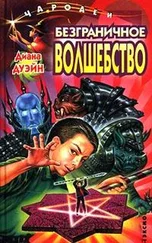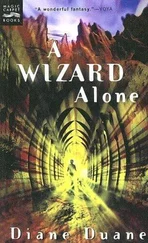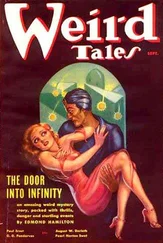Диана Дуэйн - The Door Into Fire
Здесь есть возможность читать онлайн «Диана Дуэйн - The Door Into Fire» весь текст электронной книги совершенно бесплатно (целиком полную версию без сокращений). В некоторых случаях можно слушать аудио, скачать через торрент в формате fb2 и присутствует краткое содержание. Жанр: Фэнтези, на английском языке. Описание произведения, (предисловие) а так же отзывы посетителей доступны на портале библиотеки ЛибКат.
- Название:The Door Into Fire
- Автор:
- Жанр:
- Год:неизвестен
- ISBN:нет данных
- Рейтинг книги:3 / 5. Голосов: 1
-
Избранное:Добавить в избранное
- Отзывы:
-
Ваша оценка:
- 60
- 1
- 2
- 3
- 4
- 5
The Door Into Fire: краткое содержание, описание и аннотация
Предлагаем к чтению аннотацию, описание, краткое содержание или предисловие (зависит от того, что написал сам автор книги «The Door Into Fire»). Если вы не нашли необходимую информацию о книге — напишите в комментариях, мы постараемся отыскать её.
The Door Into Fire — читать онлайн бесплатно полную книгу (весь текст) целиком
Ниже представлен текст книги, разбитый по страницам. Система сохранения места последней прочитанной страницы, позволяет с удобством читать онлайн бесплатно книгу «The Door Into Fire», без необходимости каждый раз заново искать на чём Вы остановились. Поставьте закладку, и сможете в любой момент перейти на страницу, на которой закончили чтение.
Интервал:
Закладка:
—oh, Goddess, yes, I do—
—but—
He stopped still in his indecision, and as he listened to the odd silence that prevailed within the walls, he heard something more. Someone was outside, playing a lute. The individual notes stitched through the quiet like needles through dark velvet, bright, precise; but the pattern they were embroidering was random. There was a pause as Herewiss listened; and then a chord strung itself in silvery lines across the still air, and another after it, gently mournful, though in a major key. When a voice joined the chords, singing in a light contralto, Herewiss was able to localize the sounds better. Whoever it was was somewhere to the left, around the corner of the building.
The tone of the singing, though he could not make out words, had touched Herewiss at the heart of his mood –night-ridden, melancholy. He went quietly over to the corner of the hall, leaned against the warm gray stone, peered around. Segnbora was there; sitting on the smooth paving with her back against the wall, her cloak folded behind her to lean on, a wineskin by her side. Her head was tilted back against the stone, relaxed, and the lute rested easily on her lap. If she noticed Herewiss, she gave no sign of it, but kept on serenading night and stars like a lover beneath some dark window.
'—and she fared on up that awful trail and little of it made: She stood laughing on the peak-snows with the new Moon in her hair—'
Herewiss listened with interest. With her deep voice, who'd
suspect she had a high register? Needs a little work on her vibrato, but otherwise she sounds lovely—
'Than you!' said the deep voice, with laughter. The strumming continued as Segnbora looked over at him and smiled. 'You going to stand there all night, or will you sit down and have a little wine?'
'Um,' Herewiss said, as he went over to sit against the wall beside her. 'I may have had more than I should already.'
She raised an eyebrow at him, at the same time squeezing the lute's neck and wringing a tortured dissonant chord from it. 'That bad, huh?'
'You underheard what went on in there?'
She shook her head. 'These walls are good insulators. But once you came outside, it felt like someone was trying to beat a dent out of a big pot with a sledge-hammer. Noisy.'
'Sorry,' Herewiss said.
'For what? A lot of it was the walls, anyway; they make even a fourth-level ideation echo as if it were being shouted in a cave.' She stroked the lute again, and it purred in minor sevenths. 'I take it he doesn't approve of your staying here.'
'No.'
'I can't say that I would, either, if I were in his place – but you have to stay. There's too much possibility here—'
Herewiss looked at her. (You would understand,) he said, bespeaking her.
'I'd better. Please, prince, the mindtouch – let's not and say we did. With these walls all around, the echo is really bad.'
'That's why you came outside?'
She nodded. 'Partly. Every time someone sub vocalized, my head felt like a gong being struck.' 'I didn't feel much of anything. You have sensitivity problems?'
Segnbora chuckled. 'Normally – if that's the word for it – I hear everything from fourth level up. Sometimes, if I'm drunk enough, or tired enough, I'll only pick up subvocals. But this place—' She sighed in exasperation, shook her head. 'Or maybe it's because of my period. Though usually I don't have that problem with the hormonal surge. But I was getting tired of hearing people's bladders yelling to be emptied, and stomachs complaining that they weren't full enough, and neural leakage rattling like gravel in a cup. All multiplied by six . . .'
'I used to wish I had that kind of sensitivity—'
'Don't. Unless you also wish to be able to turn it off. I can't. And it's awful. I'm tired of hearing Dritt's conscience chastising him about his weight problem, and Moris wondering if Dritt really loves him when he's so skinny, and Harald's arthritis crunching in his knee, and Lorn wanting Hergotha every night when he cleans Suthan, and Lang thinking . . . I'm just tired.' She closed her eyes, rubbed the bridge of her nose as if a headache was coming on.
'I'm sorry,' she said then lifting her head. 'I hear good things, too: I don't mean to whine.' She reached down for the wineskin.
—But even the good things make me feel so lonely, Herewiss underheard her finish the thought. He closed his eyes in pain.
Segnbora looked at him quickly; her eyes were worried, and then in a tick of time they went regretful. 'I leak, too,' she said sadly. 'I should have mentioned. Wine?'
'What kind?'
'Blood wine.'
'Which region?' Herewiss asked, interested. The grapes were only grown along the North Arlene coast, where a combination of
capricious climate and daily beatings of the vines produced an odd wrinkled grape, and eventually a sweet red liqueur with a hint of salty aftertaste – hence the name.
'Perideu. My family has a connection with the vintners – one of my great-aunts cured their vines of white rot, oh, years back. They keep sending us the stuff every year or so.'
'I might have a sip of that.'
Segnbora passed Herewiss the wineskin, and he drank a couple of swallows' worth and restoppered it. 'I didn't know you were a lutenist,' he said.
'I'm not, usually.' She smiled in the dark, leaned her head back against the stone, looking up. 'But it's a good excuse. No-one goes outside just to look at the stars, you know. So I take the lute with me some times.'
Herewiss chuckled, jerked a thumb at the sky. 'You noticed.'
'How not? But what do you think I'd do, come running in yelling, "Hey, look, everybody, the stars are all wrong"? Lorn would love that.' She laughed too. 'I was going to tell you before we left, in case you hadn't seen it already.' She touched the lute strings again, tickling them into a brief bright spill of notes like laughter, a half-scale in the Hakrinian mode. Herewiss settled back against the wall, and looked at the sky once more, regarding the bright eyes of the elsewhere night as they regarded him. 'So what else aren't you,' he said, 'besides a lutenist?'
The scale modulated into the chords Herewiss had heard while peeking around the corner. 'I'm not a poet,' Segnbora said, 'and not a singer, and not a dancer, and not a loremistress . . .' She laughed softly. 'Better not to be
too many things at once: it scares people. Besides, in the case of the dancing, better they shouldn't see. I love to dance, but I'm afraid I'll look funny – so I don't, unless I'm very drunk . . . and then in, the morning, I don't remember it anyway . . .'
She keeps laughing, Herewiss thought. As if she has to convince herself it's funny. But it's not working . . . Aloud he said, 'So how's your dancing when you're drunk?'
'No-one else remembers,' she said. 'They're all drunk too.' 'Then it doesn't matter, does it?'
'No, I guess it doesn't.' She smiled at him, a more relaxed look, almost a benediction. 'You do understand.'
'I'd better,' he said, and they laughed together. 'I'm about singing the way you are about dancing. Goddess knows why – they tell me I have a good voice – but I'm just shy … What was that you were singing before? I didn't recognize it.'
'Huh? Oh. "Efmaer's Ride". It's south Darthene, came north with my mother's side of the family. We were related to Efmaer, remotely.' Again the chords, soft and sad for all that they were in a major key.
'Wasn't she the queen who disappeared?'
'Well, according to the song, she didn't just disappear. You know the stories about Sai Ebassren in the mountains, south of Barachael?'
'Sounds familiar. Maybe it has another name I know it by-' 'In Darthen they call it Meni Auardhem.'
'Glasscastle, yes. The place in the sky that appears every so often-'
'Not very often, really. There are Moon phases and lighting conditions involved, it's very complicated. But anyway, Efmaer's loved killed himself, and since suicides
go to Glasscastle, Efmaer went to get her Name back from him. She
took the sword Shadow with her – Skadhwe, it was called then—' 'How much of this is true?'
Segnbora shrugged. 'It was a long time ago. But we know that Shadow existed, and the queen went missing. It's a nice song, anyway—'
'Does it have a happy ending?'
'It depends,' Segnbora said. 'See, here's the last verse—' The lute whispered the sorrowing chords, and Segnbora's voice was hardly louder.
'She stood laughing on the peak-snows with the new Moon in her hair, and she smiled and set her foot upon the Bridge that isn't There: She took the road right gladly to the Castle in the sky, And Darthen's sorrel steed came back, but the queen stayed there for aye . . .'
'So,' she said, modulating out of the last chord into a minor arpeggio, 'who knows? No-one came back to tell whether Efmaer found what she was looking for, or whether she was happy … '
'Glasscastle is where you go when you're tired of trying, isn't it? I remember hearing something like that.' Herewiss sighed.
Segnbora looked at him sharply. 'Don't you dare even think of it,' she said. The anger in her voice caught Herewiss by surprise, and Segnbora too, after a moment. More gently she said, 'You'll get where you're going, prince. They'll be singing about you for centuries.'
'The question is, will they be happy songs? . . . And
besides, even when you're in the middle of a song, you don't always feel like singing. I don't right now . . .'
She reached out a hand and touched his where they lay folded in his lap. 'He'll come through it,' she said. 'He's in love with
you, that's all.'
'Then why can't he see why I need to be here?!' Herewiss said, surprised again by anger, this time his own. More softly he added, 'He knows how much the Fire means to me—'
'He's in love with you,' Segnbora said again, almost too softly to be heard.
Herewiss held very still. Not even the lute broke the silence.
'Yes,' he said. 'I see what you mean.'
'If I were you,' Segnbora said, 'I'd get some sleep.'
Herewiss nodded, stood up, stretched. 'Thanks for the wine,' he said.
He headed back toward the courtyard and the hall. Her voice stopped him.
'Brother—' she said. Herewiss turned to look back at her. She was a shadowy shape, dark against the dark wall, surprisingly bright where starlight touched her – sword hilt, belt buckle, finger– ring, cloak clasp, and the half-seen eyes. In the stillness he felt the air go suddenly thick and sharp with power, mostly hers, partly his. She was having a surge, hormonal or not, and it had touched his own Fire, roused it—
Интервал:
Закладка:
Похожие книги на «The Door Into Fire»
Представляем Вашему вниманию похожие книги на «The Door Into Fire» списком для выбора. Мы отобрали схожую по названию и смыслу литературу в надежде предоставить читателям больше вариантов отыскать новые, интересные, ещё непрочитанные произведения.
Обсуждение, отзывы о книге «The Door Into Fire» и просто собственные мнения читателей. Оставьте ваши комментарии, напишите, что Вы думаете о произведении, его смысле или главных героях. Укажите что конкретно понравилось, а что нет, и почему Вы так считаете.



